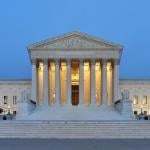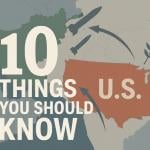Well, even though I am in Florida looking at very large birds (that’s not why I’m here, I’m just distracted by them all…is there a bird hashtag on insta? birdsofinsta?) I did get lured into reading that NY Times piece that came out yesterday about evangelicalism. Of course, the thing felt like clickbait, and then I clicked, so that’s too bad. I should have been high-minded enough to ignore it. But I am only mortal, I have feet of clay and a cell phone. I can’t always rise above the fray. And, it was an amazing piece. I was not disappointed because now I have something terrible to blog about. So let’s dive, as they say, in.
It starts out with this revelation:
Its most shocking revelation was that, between 2016 and 2020, there was no significant decline in the share of white Americans who identify as evangelical Christians. Instead, the report found the opposite: During Donald Trump’s presidency, the number of white Americans who started identifying as evangelical actually grew.
This, apparently, despite the many exhortations of many many other evangelicals like, well, mostly just David French, that having anything to do with Donald Trump amounts to a total denial of the Christian faith despite, as one kept on saying, the other candidate being who that candidate was, and political realm always being way more complicated and the motivations of people not usually being able to be tied up in a neat bow but whatever all that water has disappeared under the crumbling bridge of reasonable discourse literally ten minutes ago. It seems that the more certain kinds of people were told to reject Mr. Trump, the more tightly they clung to his apricot-hued person. This should have been my first indication that the article, and, more importantly, the Pew Research Center, was not going to really get into the guts of the matter, but I was too distracted to notice and kept reading. We go on:
Conservative Christians celebrated the news. For years, stories have appeared in media outlets about how many of the more theologically moderate denominations like Episcopalians and the United Church of Christ have suffered staggering losses in membership. The fact that denominations that allowed women pastors were declining while evangelical churches that took more conservative positions on views of gender and sexuality were holding their own was evidence for evangelicals that conservative religion has staying power. Because these moderate traditions were so much like the culture around them, the story went, it was easy for their members to fall away from church attendance. Evangelicals prided themselves on their distinctiveness from mainstream society, which insulated them from forces like secularization.
Well, yes, I will concede this point. It’s true that the mainlines declined, and that at the same time, evangelicals didn’t decline but also didn’t devote themselves to the theological rigor that would have allowed them to survive a catastrophe like, well, the apostasy of Jen Hatmaker, or Donald Trump, or Covid, take your pick. Anyway, now we come to the New York Times being snarky (and you think I’m too mean):
But they might hold off on patting themselves on the back too much. The number of self-identified evangelicals has likely not increased over the last few years because evangelicals have been effective at spreading the Gospel and bringing new converts to the church.
I just love the word “they.” I like to use it myself, and I like it when other people use it about me. So anyway, why are so many people self-identifying as “evangelical” now? The Pew Research Center has come across a shocking answer:
Instead of theological affinity for Jesus Christ, millions of Americans are being drawn to the evangelical label because of its association with the G.O.P.
I don’t know a lot about polling, but I’m pretty sure that whoever did this one should have gotten some help first from some political pundits who could have told them that it was huge disappointment and anger with the GOP for always selling conservatives down the river after every election that gave rise to a phenomenon like Mr. Trump (does anyone remember that he was promising to “drain the swamp?” That included the GOP but whatever I guess I’m a dinosaur) but Also, second, help from some actual religious people, like people who believe in a transcendent God or something. Because they discovered a lot of contradictory things, like that “evangelicals” who don’t go to church were more likely to love Trump, but also that:
The data from the Pew Research Center reinforces that — those who became evangelical between 2016 and 2020 had much warmer views of President Trump than those who didn’t feel warmly toward him. The evidence points in one direction: For many Americans, to be a conservative Republican is to be an evangelical Christian, regardless of if they ever attend a Sunday service. The second factor bolstering evangelicalism on surveys is that more people are embracing the label who have no attachment to Protestant Christianity. For example, the share of Catholics who also identified as evangelicals (or born again) rose to 15 percent in 2018 from 9 percent in 2008. That same pattern appears with Muslims. In fact, there’s evidence that the share of members of the Church of Jesus Christ of Latter-day Saints, Orthodox Christianity and Hinduism who identify as evangelical is larger today than it was just a decade ago.
I mean, is it possible–and I know this is a crazy idea–that the person doing the poll doesn’t know how to ask questions about religious people? And could it be–bear with me here because this is a wild thought–that it is just a tad disingenuous to ask questions in such a way that would make it possible for a self-identifying Muslim or Mormon or Hindu to agree to the appellation “evangelical?” Could it be that almost every religious system that includes belief in a transcendent something or other requires the people in that religious system to tell other people about that religious system? It’s called “evangelism” and the NYTimes obviously knows what it is because it is trying to do it here in its negative and unhappy version through scolding, the very thing they hated Christians doing for so many long centuries. Anyway, we go on:
Yet these non-Protestants are embracing the evangelical label for slightly different reasons. Protestants and non-Protestants have a strong affinity for the Republican Party and the policies of Donald Trump, but non-Protestant evangelicals are much more religiously devout. For instance, half of Muslims who attend services at a mosque more than once a week and align with the G.O.P. self-identify as evangelical. (Just 20 percent of Republican Muslims attend mosque once a year.) In essence, many Americans are coming to the understanding that to be very religiously engaged and very politically conservative means that they are evangelical, even if they don’t believe in the divinity of Jesus Christ.
The rapid rise of the nonreligious and non-Protestant evangelical has meant that the tradition did not fade in any significant way over the last decade. But instead, what it means to be evangelical is being radically remade. It used to be that when many people thought about evangelicalism, they conjured up an image of a fiery preacher imploring them to accept Jesus. Now the data indicate that more and more Americans are conflating evangelicalism with Republicanism — and melding two forces to create a movement that is not entirely about politics or religion but power.
Oh! I see, it’s about power. It’s always about power. It can’t, as I said, possibly be because people who believe in something like God are coming to be irrevocably divided from those that don’t believe in anything but power. It couldn’t be that the Mormon or the Catholic loves something beyond theyself and has ordered life around a transcendent reality and also has found that something like the GOP (oh my word, I can’t believe I’m saying this because the GOP is basically deeply in love with everything that the other party does so this is completely specious to even be talking about) has made belief in that transcendent proposition an option at least. Whatever we go on:
White evangelicalism has never been more politically unified than it is right now. In the 1970s, only 40 percent of white weekly churchgoing evangelicals identified as Republicans; in the most recent data, that number has risen to an all-time high of 70 percent. The evangelical coalition of 2020 may not be in agreement about which religion is the correct one or even if religious devotion is necessary to identify as an evangelical. But on Election Day, they speak with one voice — in full-throated support of the Republican candidate.
Wait, what? Really? A “white evangelicalism” that includes all these other faiths? I was right. All you poor Muslims and Mormons, if you wanted a political candidate that wasn’t going to make it impossible for you to worship your gods, you are literally a bigot. So that’s too bad.
Have a nice day!













